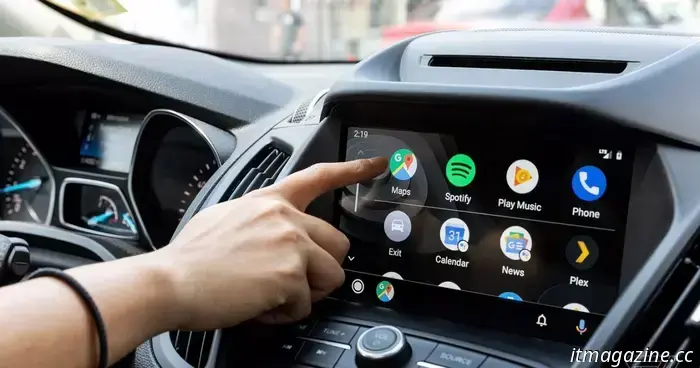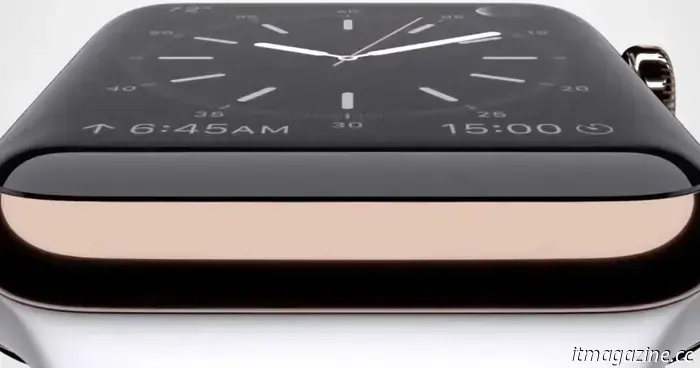
Google has confirmed that Gemini AI will be integrated into cars, wearables, and other devices this year.
Google’s Gemini AI has gained popularity among smartphone users, as the chatbot can tackle complex inquiries, present information in bullet format, and offers the feature to export answers to a Doc file. Additional functionalities include file analysis, interaction with the phone’s camera to provide insights on viewed objects, and other assistant-like capabilities that give it an edge over Apple’s Siri. It has been available as an app for both Android and iOS devices for some time and is set to launch on Google TV as well.
Recently, Google announced that Gemini will be accessible on a broader range of devices, including Android Auto, wearables, and more. This rollout will take place later this year.
“Android and Pixel are just two examples of how we’re delivering top-notch AI to users, simplifying AI usage for various tasks through their camera, voice, or screenshots,” stated Google CEO Sundar Pichai during a Q1 2025 earnings call this week. “We aim to enhance Google Assistant on mobile devices by upgrading to Gemini, and later this year, we’ll extend this upgrade to tablets, cars, and devices that link to your phone, like headphones and watches.”
Many users have anticipated this expansion, as previous updates indicated Gemini's introduction to cars and other devices. It will replace Google Assistant and will have comparable voice-activated features that enable hands-free interaction while driving, for instance, when using Google Maps. Support for multiple languages will also be included.
While most users may be eager to try the new AI assistant, some might miss their customized Google Assistant routines. If you identify with this, consider this a heads-up to start planning your transition away from Assistant since the change is expected later this year.
---
A Google Assistant glitch is causing disruption with Do Not Disturb (DnD) profiles, leading users to miss alarms, appointments, and more. The issue was initially reported on Reddit today by u/Rawalanche, who noted it began following the introduction of new DnD modes for Pixel devices. According to their report, any non-standard DnD profile—like those that permit calls only from select contacts or apps—will function only if activated through the Settings menu or notification menu. However, attempting to activate the DnD profile with Google Assistant results in it failing to activate and silencing all sounds on the device.
---
Google Pixel 9 series introduced the Call Notes feature, enabling users to record phone conversations. This feature employs AI to summarize key points from calls, create transcripts, and provide audio recordings. New findings from Android Authority indicate that an additional feature may soon be introduced. Specifically, two lines of code hint that users may soon be able to share complete call transcripts. This could be particularly advantageous for individuals conducting research interviews or hiring managers performing phone interviews, as they would be able to search for keywords and retrieve vital information from a call quickly.
---
You don’t need to own a Pixel device to utilize Google Gemini’s live camera mode. Earlier this year, Google unveiled the long-anticipated Gemini AI feature, previously referred to as Project Astra. It has now been confirmed that Gemini Live's camera and screen-sharing features will not be exclusive to Pixel devices. A Google support article revealed by 9to5Google states that camera and screen sharing in Gemini Live will be accessible on “any Android device with Gemini Advanced.” This means the functions will be compatible with any device running Android 10 or later, contrary to earlier assumptions that the feature would only be available on Pixel devices and possibly the Samsung Galaxy S25 series.





Other articles
 Take a look back at the launch advertisements for the Apple Watch from a decade ago.
Apple introduced the inaugural Apple Watch in the same year that the iPhone 6 was released.
Take a look back at the launch advertisements for the Apple Watch from a decade ago.
Apple introduced the inaugural Apple Watch in the same year that the iPhone 6 was released.
.jpg) 3 excellent free films to watch this weekend (April 25-27)
Watch these free movies from April 25-27: a crime epic by Martin Scorsese, a timeless buddy comedy, and a science fiction monster flick.
3 excellent free films to watch this weekend (April 25-27)
Watch these free movies from April 25-27: a crime epic by Martin Scorsese, a timeless buddy comedy, and a science fiction monster flick.
 NASA has obtained an impressive aerial photograph of Curiosity traversing the surface of Mars.
A NASA orbiter has taken an impressive photo of the Curiosity rover on Mars' surface.
NASA has obtained an impressive aerial photograph of Curiosity traversing the surface of Mars.
A NASA orbiter has taken an impressive photo of the Curiosity rover on Mars' surface.
 Sydney Sweeney is set to appear in the Split Fiction film.
The live-action version of the popular video game Split Fiction features Sydney Sweeney in a leading role.
Sydney Sweeney is set to appear in the Split Fiction film.
The live-action version of the popular video game Split Fiction features Sydney Sweeney in a leading role.
.jpg) Three overlooked Netflix series to check out this weekend (April 25-27)
These Netflix shows serve as a reminder of how much excellent content is frequently hidden by the algorithm.
Three overlooked Netflix series to check out this weekend (April 25-27)
These Netflix shows serve as a reminder of how much excellent content is frequently hidden by the algorithm.
-Max-movies-you-should-watch-this-weekend-(April-25-27).jpg) 3 overlooked movies on HBO Max to check out this weekend (April 25-27)
From April 25-27, check out these three overlooked films on Max: an emotional coming-of-age drama, a gruesome horror, and a psychological thriller.
3 overlooked movies on HBO Max to check out this weekend (April 25-27)
From April 25-27, check out these three overlooked films on Max: an emotional coming-of-age drama, a gruesome horror, and a psychological thriller.
Google has confirmed that Gemini AI will be integrated into cars, wearables, and other devices this year.
It has been officially verified that Gemini will be available on Android Auto, wearables, and additional platforms.
